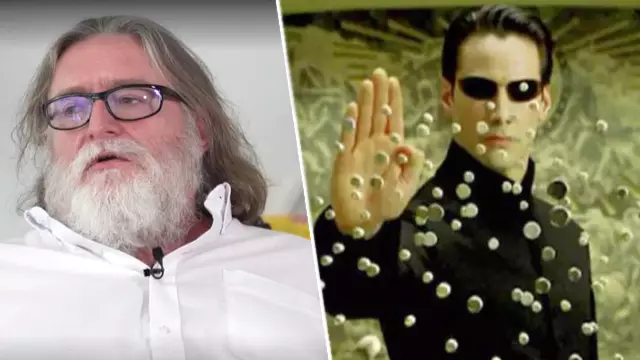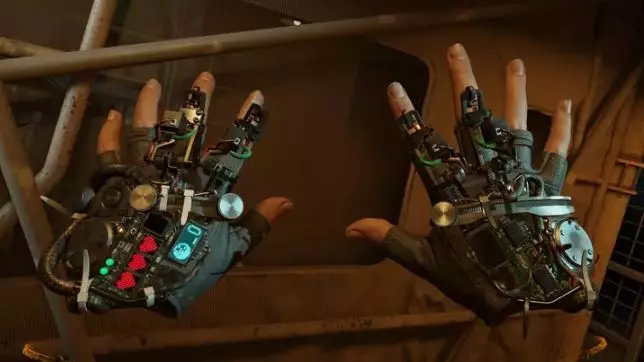
With the release of Valve's hugely anticipated VR title, Half-Life: Alyx, just days away, Valve's CEO Gabe Newell has spoken about the future of VR and where he thinks it might lead the games industry as a whole. And it might not be quite the direction you were expecting.
I mean, VR is still a fairly new technology, and the typical expense of most VR headsets mean that it's certainly not something that everyone has had the chance to experience, let alone have at home. And while it's likely that prices will come down in time, it still feels like it's going to be a while before it becomes a more mainstream way of playing games. But it seems that Newell is already looking beyond what is currently achievable - specifically, he's got his eyes on computer-brain interfaces.
"The area that I'm spending a lot of time on has been growing out of a bunch of research that occurred a while ago on brain-computer interfaces," said Newell in an interview with IGN (via PC Gamer). "I think that that's kind of long-lead stuff, so that's kind of the background thread that I get pulled back into when other things aren't demanding my attention."
Advert

"We're way closer to The Matrix than people realise. It's not going to be The Matrix - The Matrix is a movie, and it misses all the interesting technical subtleties and just how weird the post-brain-computer interface world is going to be. But it's going to have a huge impact on the kinds of experiences we can create for people."
As PC Gamer points out, the human brain is already capable of communicating with computers directly, though it's still light-years away from being anything remotely Matrix-y. Still, Newell seems to think it's worth exploring, and goes on to explain how it would be a much simpler process to send information to a player's motor or visual cortex, rather than making someone feel a fluctuation in their body temperature.
"It turns out that your brain has really good interfaces for some things and really badly designed, kludge-y interfaces for doing other things," says Newell. "And the fact that your immune system gets involved in your perceptions of temperature means there are all sorts of weird parts of your brain that participate in the sensation of being cold, whereas things like your motor cortex or your visual cortex are much more tractable problems."
Advert

Freaked out yet? I'm not really sure I'm ready for that level of immersion - I mean, how are you expected to snack or browse social media during those longer loading screens if you're fully hooked up to some sort of weird, sci-fi-esque brain scanner? Okay so it's likely going to be a long way off before games get quite that technologically advanced but Newell does seem to think it's inevitable.
"I think that it's an extinction-level event for every entertainment form that's not thinking about this," Newell said. "If you're in the entertainment business and you're not thinking about this, you're going to be thinking about it a lot more in the future."
Featured Image Credit: Valve / Warner Bros